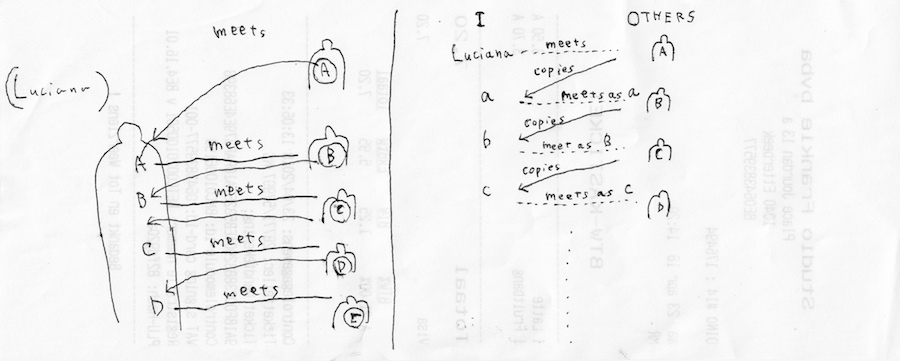news | introduction | experiments | exhibitions | CV | contact 2013–, traveling and observation of other travelers 
For a long time, I was regularly traveling as a backpacker, visiting various locations all around the world. In each place that I reached, I would meet people traveling for ‘self-searching’ (although they would often negate it), and gradually, I was fascinated by this notion itself. The so-called search for self, or jibun sagashi, is a term for the obsession of Japanese people, especially the young generations, to confront and find out who they truly are. In order to approach this aim, numerous college students (as well as adult workers undergoing transitional moments for job-changing, etc.) travel on their own. However, how can you find your true self just by traveling in a freewheeling fashion? In the first place, the word ‘self’ is quite obscure and I believe its ‘true’ nature can become visible only through interactions with others. In this project, while backpacking, I searched for my own ‘self’ nowhere but in the personalities of other travelers who were in the midst of their own ‘self-searching’ processes—by taking over their personas and switching, constantly, from one to another. Process: 1. Just as me myself (Luciana), meet and become friendly with someone (hereafter A), getting to know A’s personality by learning various details. 2. Part from A and continue traveling, now as A (by copying the name, hometown, incentive to travel, etc.); get to know the next person, B, while presenting myself as A. 3. Part from B and continue traveling, now as B; get to know the next person, C, while presenting myself as B. 4. Repeat the same cycle. In case that the traveler for me to copy is a male and/or the age gap between the person and me is significant, I adjust the personality to meet my specifications. When installed into another person’s body, one’s story becomes versionalized and a gap arises inevitably. Nowhere but in this gap lies the truly unparalleled quality of the device/hardware, namely the person’s body. Nothing but this gap itself, I hypothesize, is ‘I’. |